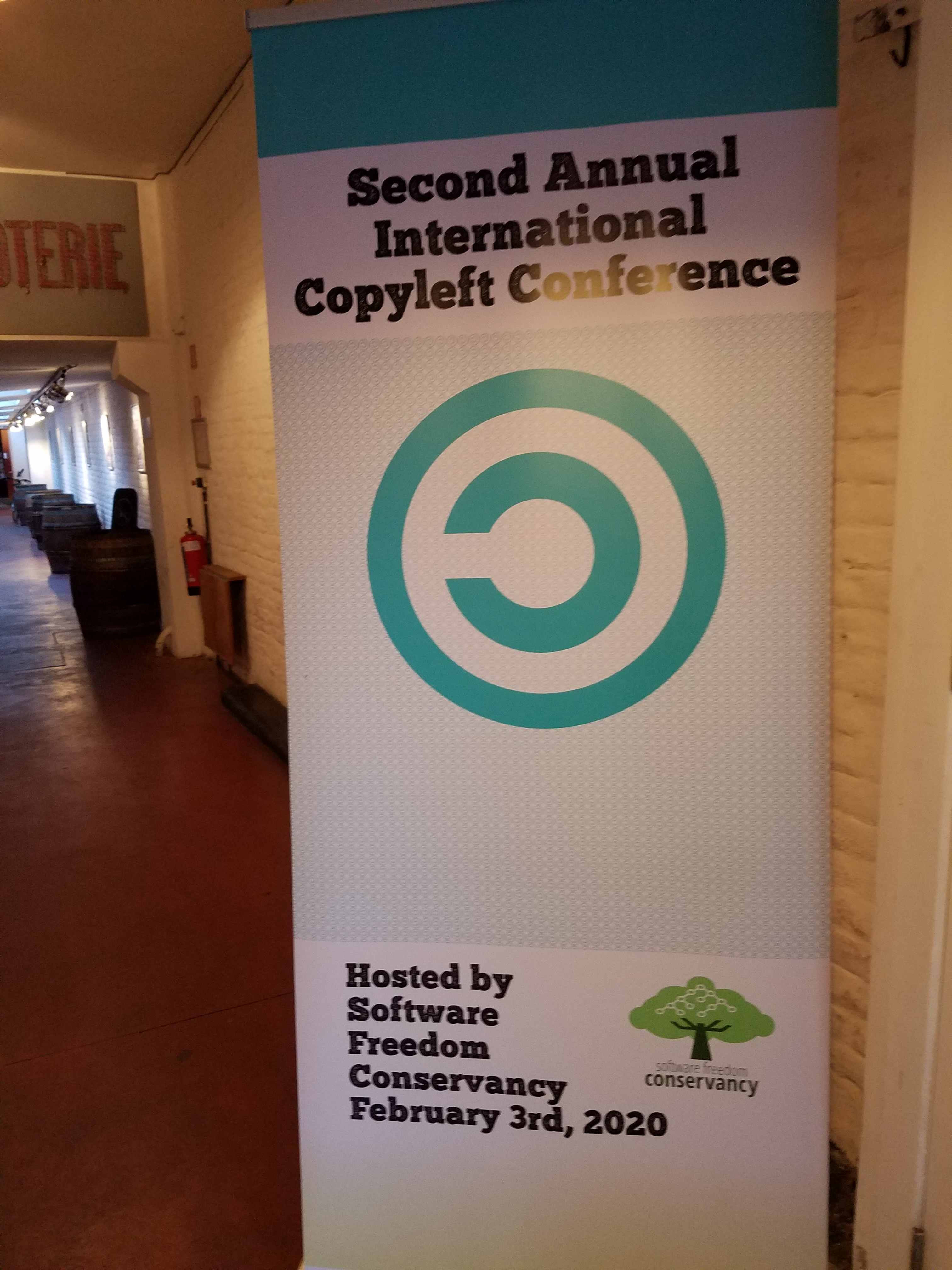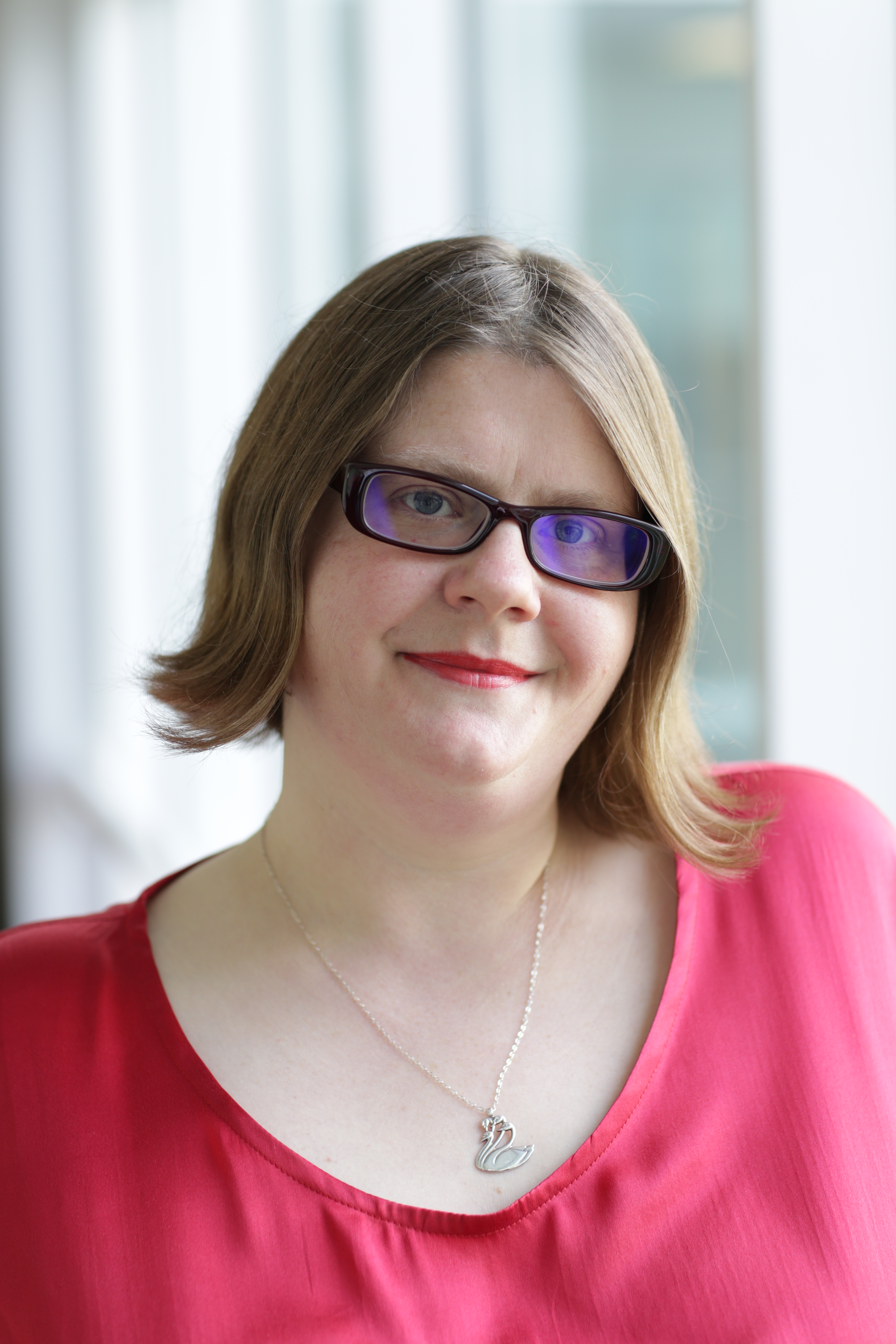![[RSS]](/static/img/feed-icon-14x14.2168a573d0d4.png) Conservancy Blog
Conservancy Blog
Displaying posts
by Conservancy's Staff
![]()
Conservancy Requests Three DMCA Exemptions to Let People Control Their Devices
by on September 16, 2020
Every three years, the US Copyright Office conducts a rulemaking process to consider exemptions to the anticircumvention provisions of the Digital Millennium Copyright Act (DMCA). These are the provisions of the law that make it a criminal offense to circumvent digital rights management technology (DRM). These provisions give technology companies far too much control over the technology people use, prohibiting all kinds of modification and tinkering in the name of “copyright protection.” We would love to see the anticircumvention provisions of the DMCA repealed in their entirety.
Until that happens, the rulemaking process gives us an opportunity to request exemptions that are strategically important for software freedom and essential for us to be able to control our own devices. This year we requested three new exemptions:
- To allow people to investigate whether software on a device violates free and open source software (FOSS) licenses, and to exercise rights that would ordinarily be granted by those licenses were it not for the technological restrictions
- To allow people to conduct good-faith testing, investigation, and correction of privacy issues—for example, think Internet of Things devices that phone home with more information than they disclose
- To allow people to install alternative firmware on routers and other network hardware they buy, to add or remove functionality as they see fit
All of these exemptions recognize the growing prevalence of small, dedicated devices in many people’s lives. We’re always horrified to learn when gadgets that should be innocuous like doorbells, thermostats, and baby monitors are spying on us, whether by design or careless programming. It should not be a crime for people to investigate these issues and take steps to defend themselves with devices they’ve bought and own—especially when the device is running FOSS that promises the user those very rights. Our requests call on the US Copyright Office to codify that common sense into law.
We also requested renewal of the exemption that allows people to install alternative software on smart TVs that we previously won in 2015.
These requests kick off the beginning of the process, where all new exemptions are requested. We can expect the Copyright Office to announce what exemptions are granted around this time next year. We’ll be sure to keep you updated on the process.
Last Week in Brussels: FOSDEM, Copyleft Conf and More
by on February 10, 2020
FOSDEM
FOSDEM is a great volunteer-run, community-driven event that has been going on for twenty years!! Conservancy staff and volunteers who attend the event are grateful to have the opportunity to interact with so many passionate free software advocates in one place each year.
The FOSDEM organizers invited Bradley and Karen to speak on the main track talk — the next installment talk on the difficulty in living in software freedom and making ethical choices today — a follow-up to their keynote from last year.
Conservancy staff also gave some DevRoom talks, including participating in the one-of-a-kind debates in the Legal & Policy DevRoom this year. Nearly all of these recordings are now available. The FOSDEM video team is amazingly efficient — with a fully FOSS system for conference video!
The well-attended Legal & Policy DevRoom (which Bradley and Karen help organize each year) occurred all day on Saturday. In the morning, Bradley participated in a debate entitled, Does Careful Inventory of Licensing Bill of Materials Have Real Impact on FOSS License Compliance? The debate format was an exciting new addition to the DevRoom this year. (Please note that per the debate format, some speakers took positions that did not necessarily reflect their personal or organizational views.)
On Sunday, Deb spoke about Building Ethical Software Under Capitalism, in the Community Devroom. Later that day in the same room, Bradley Kuhn discussed, How Does Innersource Impact on the Future of Upstream Contributions?.
On Sunday, Conservancy welcomed attendees to learn more about our organization at our booth. We thank our volunteers who greeted and discussed Conservancy's work with attendees; we appreciate your energy. Also, thanks to the many Outreachy alums (all of whom are still participating in FOSS!) who stopped by the booth — it's really gratifying to hear from you. One current intern even asked for a selfie with our staff!
Many of our member projects were also at FOSDEM. Coreboot ran a shared booth, Homebrew had their second in-person meeting on Monday and Godot had a booth and helped run the Gaming Development track.
Godot also hosted two pre-conference sprint days and a two day “FOSDEM Fringe” event — GodotCon.Copyleft Conf

Photo is by Deb Nicholson and is available under a CC-BY-SA-4.0 license
We ran the Second Annual Copyleft Conf on Monday. The event sparked lively and respectful conversations about the use and future of copyleft. The event included an exciting, multi-faceted schedule of talks and panels. Our lovely program committee — Molly de Blanc, Nithya Ruff, Harald Welte, Josh Simmons, Beth Flanagan, Bradley Kuhn and Deb Nicholson — curated and selected excellent content for the day. Thanks also to our Copyleft Conf volunteers, who helped with registration, speaker introductions and time-keeping.
All the Copyleft Conf sessions and Deb's CHAOSS Con keynote (a Friday “FOSDEM Fringe” event), Ethics: What You Know & What You Don't Know should be posted within a few weeks.
Talking with More People about Free Software: Interview with Leslie Hawthorn
by on January 13, 2020
We asked Leslie Hawthorn, one of the excellent humans who are supporting our annual fundraiser, why she’s putting up matching funds. We’ve already raised almost $94,000 and have just about $19,000 left to raise in the next few days in order to meet this year’s ambitious match challenge. Donations help us support and protect free software alternatives and grow a bold software freedom movement where everyone is welcome.

Leslie Hawthorn
Leslie’s official bio only scratches at the surface of all the reasons she’s had an impressive impact on free software. An internationally known developer relations strategist and community management expert, Leslie Hawthorn has spent the past decade creating, cultivating, and enabling open source communities. She’s best known for creating Google Code-In, the world’s first initiative to involve pre-university students in open source software development, launching Google’s #2 developer blog, and receiving an O’Reilly Open Source Award in 2010. Her career has provided her with the opportunity to develop, hone, and share open source business expertise spanning enterprise to NGOs, including senior roles at Red Hat, Google, the Open Source Initiative, and Elastic.
Q. How does software freedom fit in with the other causes you support?
A. I am a big believer in citizen sovereignty over their own data and personal privacy. Without software freedom, we would not have access to audit how code works and to verify how our data may be captured by various entities.
Q. What kinds of activities do you think will help us get more new people interested in free software?
A. I think we’re in an excellent place to get more folks excited about free software right now! After the various data abuses that have come to light through The Cambridge Analytica scandal, etc., I think that many more people are thinking deeply about their relationship with technology. Imagine if we could let everyone who has never thought about programming know that there are people who do program or work with software projects, who care deeply about their privacy and rights as individuals, and who are there to help them understand the interplay between technology and their everyday experience. One of my dearest friends is a teacher for middle school students who are recent immigrants to the United States; she recently gave me a ring to ask me about all this free software stuff I work on because it now made much more sense to her why these topics are important and what impact they have on her life—she doesn’t even use her computer daily. Exciting times!
Q. Do you talk to family and friends about free software? If so, where do you usually start?
A. Obviously, yes I do. I usually talk a little bit about what I do for work and how it relates to the experience of folks who use technology—that’s everyone!—and do not work in the tech industry. For example, I have asked my loved ones to contact me using Signal so we can have truly private conversations. Most people don’t want to hear a lot more, and that’s OK. If folks do want to learn more about free software, I talk to them about what interests them.
Q. What motivated you to step up as a matcher for Conservancy this year?
A. I deeply value the work done by Conservancy for free software projects, and their fine advocacy work for software freedom. As a big personal fan of the North Bay Python, Outreachy, and Teaching Open Source communities, I am grateful to Conservancy for their support of these initiatives. I am a proud matcher this year to help the Conservancy to assist these communities, and the other 40+ free software projects and communities who call Conservancy their fiscal agent home.
Participate in the match and have your donation doubled through the generosity of folks like Leslie today!
Conservancy’s Member Projects Ask for Your Support
by on December 8, 2017
Outreachy, North Bay Python, LibreHealth, Sugar, Wine, Linux XIA, Xapian, Homebrew, and Git all ask you to support Conservancy. Become a Supporter today while your donation counts twice!
[1] 2
